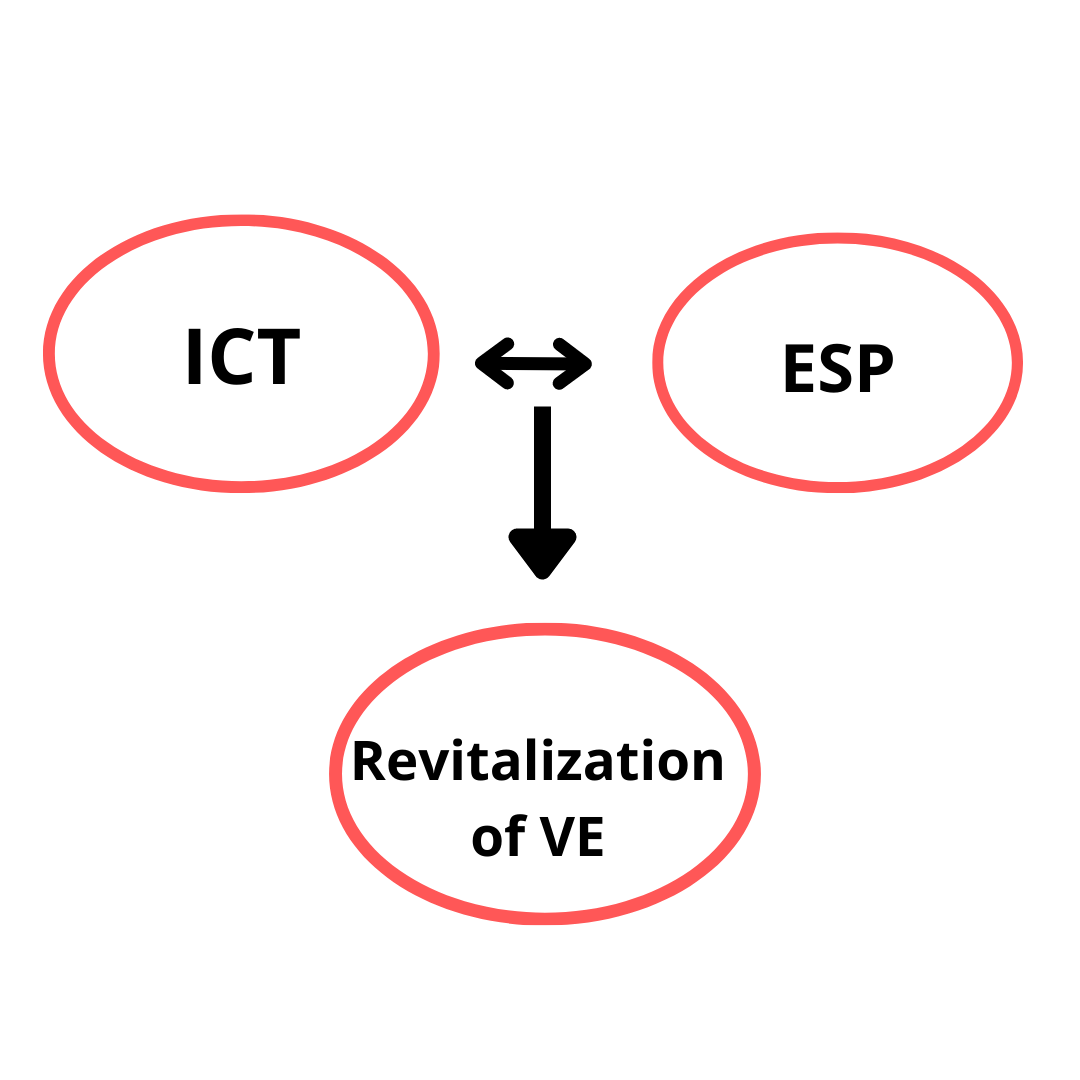Indonesian English teachers’ voices on the revitalization program at vocational schools
DOI:
https://doi.org/10.21070/jees.v7i1.1658Keywords:
vocational school, case study English teachers at Vocational Schools, revitalization of vocational schoolsAbstract
This research reports on the results of an interview study of nine English teachers at vocational schools (VS) in Indonesia. The study aimed to explore English teachers’ voices of the revitalization program at VS’s in Indonesia. The study shed the light on two major issues of English teaching and learning at VS’s concerning revitalization program implementation. The two main themes were the use of specific technology in the language classroom and video mediated language learning in vocational English classroom.The results indicated that most of teachers more preferably used social media for teaching than utilizing a learning management system (LMS). Teachers have used video mediated teaching method for their English classes either self-production videos or a ready-made video from the internet. English for business was also introduced to students to equip them with basic knowledge for a job selection The results have implications for the implementation of revitalization programs in particular the revitalization of vocational English teaching and learning at SMK.
HIGHLIGHTS:
- Most of teachers more preferably used social media for teaching than utilizing a learning management system (LMS) this is because social media is more practical, handy to use, and equipped with sufficient features, such as voice note, video recording, and device mirroring, which enable teachers to build learning engagement with students.
- Video mediated EFL teaching is an innovative teaching strategy developed by EFL teachers amidst the crisis of Covid 19. The videos are self-made by teachers and ready to use resources from the internet.
- The integration of technology into EFL classroom at vocational schools is one of the ultimate goals of the revitalization program at vocational schools across Indonesia.
Downloads
References
Aflah, M. N., & Yanti, G. S. (2019). Framework teknologi multimedia untuk pengajaran Bahasa Inggris. Jurnal Pendidikan Edutama, 6(2), 61. https://doi.org/10.30734/jpe.v6i2.480
Hadam, S., Rahayu, N., & Ariyadi, A. N. (2017). Strategi implementasi revitalisasi SMK. In Buku Serial Revitalisasi SMK. https://doi.org/10.1300/J028v11n01_10
Kemdikbud (2017). Revitalisasi SMK untuk produktifitas dan daya saing bangsa. retrieved from https://www.kemdikbud.go.id/main/blog/2017/05/revitalisasi-smk-untuk-produktivitas-dan-daya-saing-bangsa
Lee, J., Wahidiat, S., & Khurniawan, A. W. (2017). Startegi implementasi revitalisasi SMK melalui bilingual learning ecosystem. https://doi.org/10.1007/s00253-011-3237-z
Miles, B., & Michael, A. (1994). Qualitative data analysis: An expanded sourcebook. Journal of Environmental Psychology, 14(4), 336–337. https://doi.org/10.1016/s0272-4944(05)80231-2
Miolo, S. T., Emzir, E., & Rasyid, Y. (2017). English Speaking Learning through The “English Area” Program in SMK Negeri I Gorontalo. JETL (Journal Of Education, Teaching and Learning), 2(2), 133. https://doi.org/10.26737/jetl.v2i2.276
Nowell, L. S., Norris, J. M., White, D. E., & Moules, N. J. (2017). Thematic analysis: Striving to meet the trustworthiness criteria. International Journal of Qualitative Methods, 16, 1–13. https://doi.org/10.1177/1609406917733847
Putri, S. A. S. M., & Yuyun, I. (2018). Evaluasi pelaksanan English Day di Sekolah Mengenah BPK Penabur Jakarta. Prosiding Seminar Nasional Hasil Pengabdian Kepada Masyarakat, 3(1), 203–208.
Qu, S. Q., & Dumay, J. (2011). The qualitative research interview. Qualitative Research in Accounting and Management, 8(3), 238–264. https://doi.org/10.1108/11766091111162070
Rafidiyah, D., & Kailani, A. (2019). Revitalisasi pengajaran Bahasa Inggris di SMK: Solusi konkrit bagi permasalahan pengangguran di Indonesia. In Rekomendasi kebijakan 100 hari pertama Jokowi-Ma’ruf Amin (p. 140).
Rafidiyah, D., & Kailani, A. (2020). Identifikasi potensi SMK Muhammadiyah sebagai lembaga pendidikan vokasi yang berkemajuan: Studi fenomenologi terhadap penerapan program revitalisasi SMK di Indonesia. Pedagogik Jurnal Pendidikan, 15(1), 49–66. https://doi.org/10.1017/CBO9781107415324.004
Sari, L. H. P. (2013). Persiapan siswa dalam memasuki dunia kerja dan impilasinya terhadap pelayanan bimbingan dan konseling. KONSELOR Jurnal Ilmiah Konseling, 2(1), 208–212.
Sari, R. K. (2017). Persepsi pengajar dan pemelajar terhadap penggunaan teknologi dalam pengajaran Bahasa Inggris. Jurnal SAP, 1(3), 333–343.
Suhirman. (2019). Revitalisasi pendidikan kejuruan agribisnis pengolahan hasil pertanian melalui pengembangan kurikulum berbasis industri, teaching factory dan sertifikasi kompetensi. Jurnal Rekayasa Dan Manajemen Agroindustri, 7(2), 279–291.
Sukrawan, Y., Soemarto, & Komaro, M. (2018). Blended learning development for vocational education. IOP Conference Series: Materials Science and Engineering, 434, 012262. https://doi.org/10.1088/1757-899X/434/1/012262
Surjono, H. D., & Susila, H. R. (2013). Pengembangan multimedia pembelajaran Bahasa Inggris untuk SMK. Jurnal Pendidikan Vokasi, 3(1), 45–52.
Wichadee, S. (2017). A development of the blended learning model using Edmodo for maximizing students’ oral proficiency and motivation. International Journal of Emerging Technologies in Learning, 12(2), 137–154. https://doi.org/10.3991/ijet. v12i02.6324

Published
How to Cite
Issue
Section
License
Copyright (c) 2022 Ahmad Kailani, Dina Rafidiyah

This work is licensed under a Creative Commons Attribution 4.0 International License.







